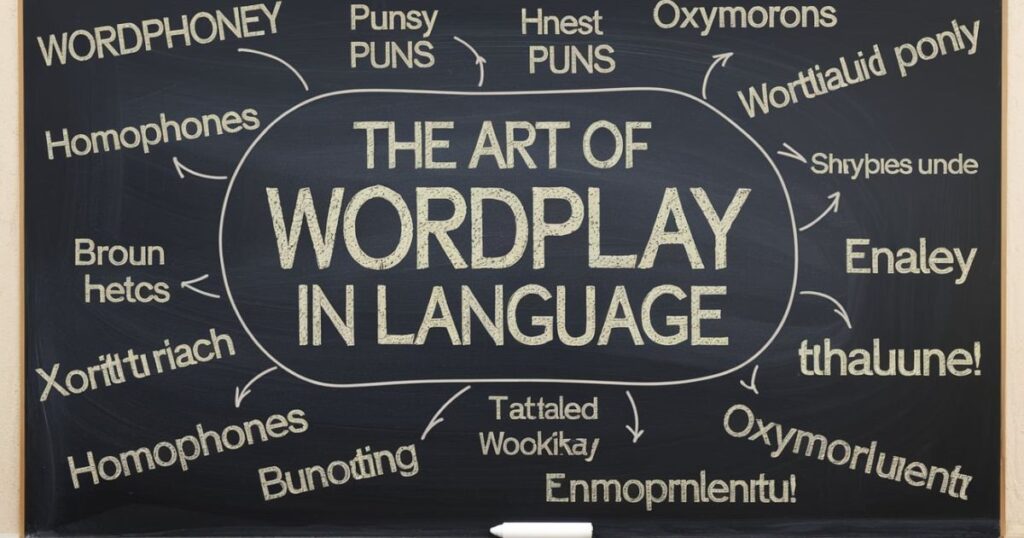Have you ever found yourself scratching your head over a cryptic crossword clue that reads “a mild reprimand when doubled“? If so, you’re not alone.
This seemingly innocuous phrase has puzzled and delighted word puzzle enthusiasts for years, offering a perfect blend of linguistic wit and cultural insight.
In this comprehensive exploration, we’ll unravel the meaning behind this clever clue, delve into its origins, and examine how it reflects the broader world of language play and crossword puzzles.
What Does “A Mild Reprimand When Doubled” Mean?
To understand this phrase, let’s break it down piece by piece:
- Mild reprimand: This refers to a gentle scolding or expression of disapproval. It’s not a harsh rebuke, but rather a soft admonishment.
- When doubled: This is the key to solving the puzzle. It suggests that the answer is a word or sound that, when repeated, forms a familiar phrase.
The solution to this clever clue is the simple word “tut“. When doubled, it becomes “tut-tut“, a well-known expression of mild disapproval or disappointment.
This wordplay exemplifies the creativity found in cryptic crosswords and other word games. It challenges solvers to think beyond literal definitions and explore the playful aspects of language.
The clue’s brilliance lies in its simplicity – once you know the answer, it seems obvious, yet it can stump even experienced crossword enthusiasts at first glance.
Origins of the Phrase

The phrase “a mild reprimand when doubled” likely originated in the world of puzzle-making and wordplay. Crossword puzzles, particularly cryptic ones, often feature clues that require lateral thinking and a deep understanding of language nuances. This clue is a perfect example of such clever construction.
Cryptic crosswords, which gained popularity in the early 20th century, particularly in British newspapers, are known for their witty and often misleading clues. The “tut-tut” clue fits perfectly into this tradition, combining cultural knowledge with linguistic playfulness.
“The art of the cryptic crossword lies in the setter’s ability to mislead and misdirect, while still providing a fair path to the solution.” – Anonymous Crossword Setter
The use of “tut” as a mild reprimand has a long history in English-speaking cultures. Its origins can be traced back to the imitative sound of clicking one’s tongue against the roof of the mouth to express disapproval.
This non-verbal communication evolved into a vocalized “tut” sound, which eventually found its way into written language.
The Role of “Tut” in Language
The word “tut” plays a fascinating role in the English language. It’s an example of onomatopoeia – a word that phonetically imitates the source of the sound it describes. In this case, “tut” mimics the sound made when expressing mild disapproval or impatience.
Tutting, or making this clicking sound with the tongue, is a near-universal form of non-verbal communication. It’s found in various cultures around the world, though its specific meaning may vary slightly.
In English-speaking countries, it’s generally understood as a mild expression of disapproval or disappointment.
When used in speech or writing, a single “tut” often conveys a sense of mild disappointment or disagreement. For example:
- A parent might “tut” when a child forgets to do their homework.
- A friend might “tut” jokingly when you’re a few minutes late to meet them.
The doubling of “tut” into “tut-tut” adds emphasis to the reprimand, but still keeps it within the realm of gentleness. It’s not a harsh scolding, but rather a playful or mildly disapproving response.
Read This Post
Common Usage of “Tut-Tut” in Modern Language
In modern usage, “tut-tut” has found its way into various aspects of communication:
- Casual conversations: Often used humorously to express mock disapproval.
- Literature and media: Writers frequently employ “tut-tut” to characterize disapproving or prim characters.
- British English stereotypes: The phrase is sometimes associated with stereotypical British reserve and politeness.
Here’s a table illustrating different contexts where “tut-tut” might be used:
| Context | Example Usage | Implied Meaning |
| Parenting | “Tut-tut, you’ve spilled your juice again.” | Gentle reminder to be more careful |
| Workplace | “Tut-tut, the report is late.” | Mild disappointment, not severe criticism |
| Social Media | “Tut-tut” as a comment on a controversial post | Playful expression of disagreement |
| Literature | “The governess tut-tutted at the children’s untidy appearance.” | Characterization of a prim or proper personality |
“Tut-Tut” and Crossword Clues
For crossword enthusiasts, clues like “a mild reprimand when doubled” are part of the thrill of solving puzzles. Such clues are common in both standard crosswords and cryptic crosswords, though they’re more characteristic of the latter.
In cryptic puzzles, the joy comes from the “aha!” moment when the solver realizes that the answer isn’t just a word, but a concept – in this case, the repetition of a sound that represents mild disapproval. This type of clue challenges solvers to think laterally and consider multiple meanings or interpretations of words.
Here’s a table showing some variations of how “tut” or “tut-tut” might appear in crossword clues:
| Clue | Answer | Type of Crossword |
| A mild reprimand when doubled | Tut | Cryptic |
| Sound of disapproval | Tut | Standard |
| Gentle scolding, repeated | Tut | Cryptic |
| “Now, now,” essentially | Tuttut | Standard |
| Clicking sound of disapproval | Tut | Standard |
For crossword solvers, recognizing patterns in clues like these can be a valuable skill. Once you’ve encountered the “tut-tut” clue, you’re more likely to spot similar wordplay in future puzzles, enhancing your solving abilities.
The Art of Wordplay in Language

The phrase “a mild reprimand when doubled” is a delightful example of the joy of language. Wordplay like this demonstrates the depth and flexibility of everyday speech, where simple sounds or words can carry multiple meanings or serve as shorthand for complex emotions, reactions, or social cues.
Language play isn’t just about having fun with words; it also serves several important functions:
- Cognitive Benefits: Engaging with wordplay can improve cognitive flexibility and lateral thinking skills.
- Cultural Bonding: Shared understanding of linguistic jokes and puzzles can create a sense of community among language enthusiasts.
- Language Preservation: Wordplay often preserves older or less common words and phrases, keeping them alive in modern usage.
- Educational Tool: Teachers often use wordplay to make language learning more engaging and memorable.
The “tut-tut” clue is just one example of how language can be manipulated for clever effect. Here are a few more examples of wordplay commonly found in puzzles and everyday language:
- Puns: “Time flies like an arrow. Fruit flies like a banana.“
- Palindromes: “A man, a plan, a canal: Panama“
- Anagrams: “Debit card” = “Bad credit“
- Homophones: “The rain in Spain stays mainly in the plain”
These examples showcase the rich tapestry of linguistic creativity that makes language so fascinating to explore and play with.
When Doubled: Other Interesting Examples

While “tut-tut” is a classic example of a word that changes meaning when doubled, it’s far from the only one. The English language is full of such instances, many of which also appear in crossword puzzles. Here are a few intriguing examples:
- “When doubled, very friendly”: The answer here is “chum“. While “chum” on its own means a friend, “chum-chum” is an intensified form, suggesting a very close friendship.
- “When doubled, Get my innuendo”: This clue points to “wink“. A single wink can suggest many things, but “wink-wink” is often used to indicate that the speaker is making a joke or innuendo.
- “When doubled, sailor’s assent”: The answer is “aye“. While “aye” means “yes“, “aye-aye” is a common response in nautical contexts, indicating that an order has been received and will be carried out.
- “Partner of rules, informally”: This clue hints at “reg”, short for “regulation“. When doubled, “reg-reg” becomes a playful way of saying “rules and regulations“.
These examples demonstrate how doubling words can create new meanings, often with a more intense or specific connotation than the original word. This linguistic feature is not only fun to explore but also provides rich material for puzzle creators and language enthusiasts alike.
Conclusion
The phrase “a mild reprimand when doubled” is more than just a clever crossword clue. It’s a window into the fascinating world of language play, cultural expressions, and the art of puzzle-making. By understanding the meaning behind “tut-tut” and similar phrases, we gain insight into how language evolves, how we communicate subtle emotions, and how wordplay enriches our linguistic landscape.
For crossword enthusiasts and language lovers alike, such phrases offer a delightful challenge and a moment of satisfaction when solved. They remind us that language is not just a tool for communication, but a playground for creativity and wit.
The next time you encounter a puzzling clue or an unfamiliar phrase, remember the lesson of “tut-tut“. Look beyond the literal meaning, consider cultural context, and don’t be afraid to play with language. After all, that’s where the real joy of words lies.
So, whether you’re a seasoned crossword solver or simply someone who appreciates the nuances of language, keep exploring, keep questioning, and above all, keep enjoying the endless surprises that language has to offer. And if you ever find yourself stumped by a clue, just remember – a little lateral thinking (and maybe a playful “tut-tut”) might be all you need to crack the code.
FAQs
What does mild reprimand mean?
A mild reprimand is a gentle or soft scolding. It’s a way of expressing disapproval or criticism without being harsh or severe. In the context of “tut-tut“, it’s more of a reminder or light admonishment rather than a serious telling-off.
What is another word for reprimand crossword?
In crossword puzzles, you might find clues for “reprimand” using words like “scold“, “chide“, “admonish”, “rebuke“, or even playful terms like “tut-tut“. The specific word used often depends on the difficulty and style of the crossword.
What is very friendly when doubled?
“Chum” is a word that means “friend“, but when doubled to “chum-chum“, it intensifies to mean “very friendly” or “best friend“. This is another example of how doubling words can change or enhance their meaning.
What does it mean for something to be doubled?
In language and puzzles, when something is “doubled“, it means the word or phrase is repeated. For example, “tut” becomes “tut-tut“. This repetition often changes or intensifies the meaning of the original word.
What does it mean when someone is doubled over?
“Doubled over” is an idiomatic expression meaning to bend forward sharply at the waist. This could be due to pain, laughter, or other strong physical reactions. It’s a vivid description of a specific body posture and is unrelated to the linguistic concept of doubling words.
